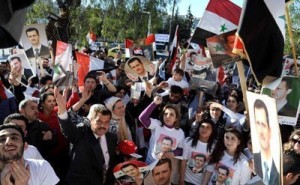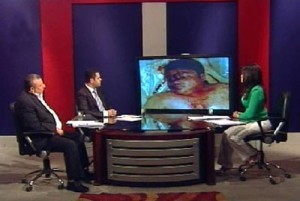Between 25-26 July 2011 Ambassador of Tajikistan to European Union , Rustamjon Soliev , had made an working visit to Romania at the invitation of Professor Dr. Anton Caragea, President of European Council on International Relations in order to further develop the bilateral relation and offer new dimensions to economical, cultural and political dialogue between Tajikistan , European Union and Romania .
His Excellency Ambassador Rustamjon Soliev – Ambassador of Republic of Tajikistan to European Union
In the framework of the visit Ambassador Soliev paid special attention to de-frozen the economic dimension of the relations between the two countries.
Ambassador of Tajikistan had arranged meetings with Romanian Chamber of Commerce President and European Union Bilateral Chambers of Commerce Vice-President , Director of Romanian Investment Agency and Ministry of Economy and other Romanian economic officials .
The parties expressed the common desire of re-launch the bilateral relations by mutual assured investment , development of trade and tourism . Romanian side express the desire , in accordance with Tajikistan Ambassador views , to have an Romanian ( EU) – Tajikistan Economic Forum , to have Tajikistan investment in Romanian tourist sites and to have practical offers for investment in Tajikistan .
In the meetings held by Ambassador Soliev at Energy Minister , Romania offered technical expertise for rehabilitation of Tajikistan energy system and also expressed interest in programs for solar and wind energy exploitation in Tajikistan .
In all the meetings Ambassador Rustamjon Soliev received official congratulation on the appointment of President of Tajikistan, Emamoli Rahmon for the prestigious European Award of LEADER OF XXI CENTURY , the Romanian side underlining that this famous award is the expression of Tajikistan new position of strength in the world and also an incentive for foreign investors to seek closer economical and political relations with Tajikistan , as the prize is awarded as a proof of European confidence in a country and a leader.
In a special meeting at the European Council on International Relations Headquarters Ambassador Rustamjon Soliev presented for an impressive audience of academics , politicians, diplomats and foreign observers , a report about Tajikistan development today .
The report was based on the masterpiece book TAJIK ARTS AND CRAFTS THROUGH THE CENTURIES by Hamrokhon Zarifi , Minister of Foreign Affairs of Tajikistan and highlighted the cultural richness and lofty tradition of the country. From Alexander the Great to Silk Road and today development and beauties of Tajikistan under President Emomali Rahmon economic and social reform program , the complete image of Tajikstan was presented in the Ambassador Soliev report .
Ambassador Soliev and european academics.















